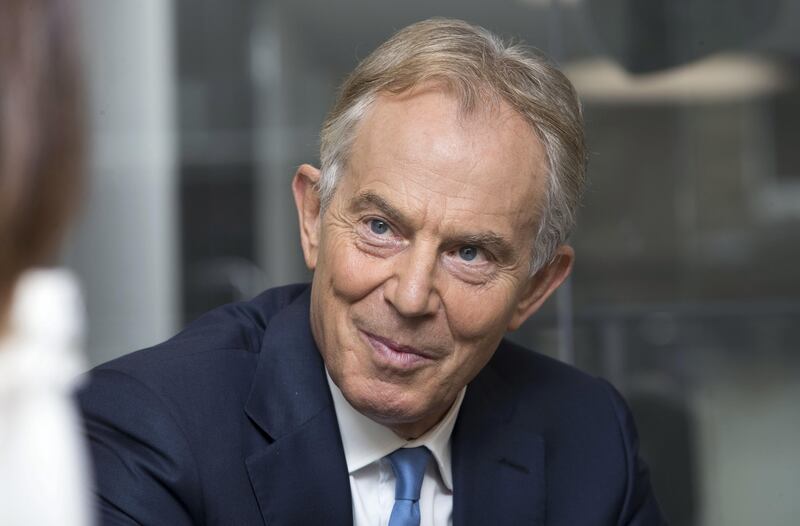Confronting radicalism and rooting out extremism ought to be the principal priorities of governments in the West and the Muslim world. That was one of the messages of Tony Blair, the former British prime minister who sat down last week for a wide-ranging exclusive interview with The National's editor-in-chief, Mina Al-Oraibi, and the newspaper's London bureau chief, Damien McElroy. Islamist violence, Mr Blair said, cannot be isolated from the ideology from which it emanates. To defeat one, you must deal with the other.
“You have to tackle the ideology, not just the violence, because it is the thinking that gives rise to the violence”, he said. “You have to hit at the extremism in thought and in deed if you want to tackle this thing properly”. Mr Blair advanced concrete ideas to wage this war, citing education as the most important of all battle grounds. Schools run by the Muslim Brotherhood, for instance, immerse pupils from a young age in extreme views. Is it a surprise, then, that “some of them turn out to become violent”? This is why he regards education in many countries as a national security issue.
_________________________
Read more
[ Blair reveals his vision for rooting out extremism and praises Gulf states’ leadership ]
[ Tony Blair calls for a second vote on Brexit ]
_________________________
Mr Blair's clarity can be bracing. But his diagnosis is tempered with the recognition of the possibilities before us. His call for a "global commitment around education systems where governments … promote religious tolerance and root out religious prejudice" merits serious attention. As does his belief that before us is a "great opportunity to build an alliance between open-minded Muslim majority countries and the West". Moderates had cause for hope, he said, because the leaders in the United Arab Emirates, Saudi Arabia, Egypt, Jordan and Bahrain are "put[ting] forward a view that is rational and open-minded about the role of religion in society".
A controversial figure in Britain for taking the country to the US-led invasion of Iraq in 2003, Mr Blair remains finely attuned to the political currents in the Middle East. While European politicians scramble to appease Iran on the assumption they can moderate its behaviour by fast-tracking its readmission into the international community, Mr Blair views Tehran as a destabilising force. In Iraq, he says, it is promoting sectarianism and must, in the interests of that country, "pushed out". In Syria, where Iran has secured the presidency of Bashar Al Assad, it is the major impediment to progress. The UAE, according to Mr Blair, is a model for the region and the world, "showing people there are better, different interpretations of Islam". As Britain prepares to exit the European, the contrast with the UAE country, which is confidently embracing the world, cannot have skipped Mr Blair's mind. No nation, he said, can be an island, because all of us are engaged "in a struggle for a view about the way societies operate that is essentially open-minded and tolerant".
Follow The National's Opinion section on Twitter





